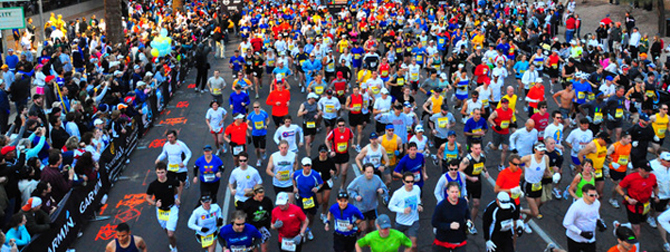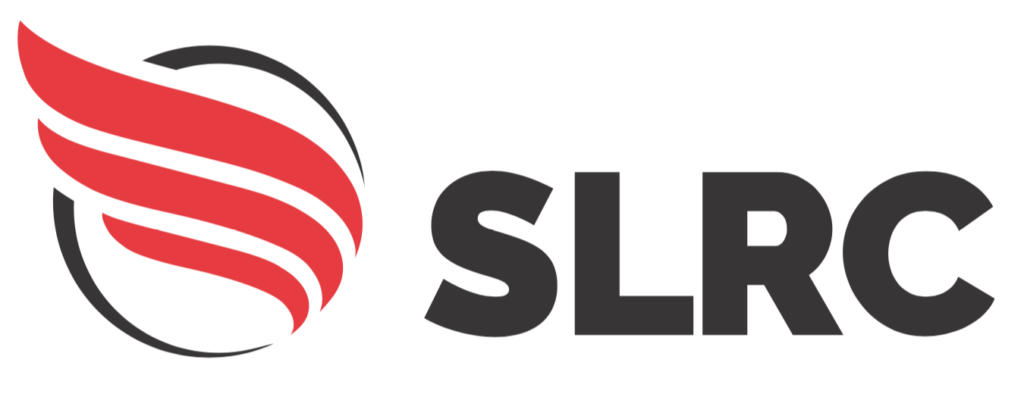
After all the training leading up to your big event, the last mistake you want to make race morning is with your pre-race nutrition. There are some athletes who decide that they want to skip all the confusion and try not eating. While this may work for a morning 5k, it gets more risky with a 10k and down-right nonsense for a half marathon or marathon. Several studies show that repeatedly show substantial increases in performance with proper fueling before an event.
In addition to increasing performance and topping of glycogen (energy) stores, a pre-race meal will also help avoid hunger, stabilize blood sugar (especially in those who are sugar sensitive), hydrate the body, leave your stomach empty and help prevent gastrointestinal distress when done correctly. So in other words, you’ll feel and perform better. The key is to customize your eating habit based on your weight, race distance and food sensitivities.
Here are some basic guidelines to follow on race morning:
1. Consume .5 to one gram of carbs per pound of body weight the morning of race. For longer races stick to one gram per pound. At least half of it should be solid food eaten no later than two hours before the race. The rest of the requirement can be taken in the form of a pre-race hydration drink (see below) up to 30 minutes prior to start time. There are some extra sensitive people that can only do liquids the morning and that’s fine (especially for short racing, less than 40 minutes, and high intensity racing). Some people carry a packet of gel to take 10 to 15 minutes before, if they feel they may need more.
2. Choose solid food that is low to moderate in glycemic value. This is a key factor that will help keep your blood sugar stable before and during the race. One reason some people feel hungry right before they start is due to their pre event breakfast being too high in simple sugars (sugar cereal, white breads, candy, etc.), which caused a hypoglycemic reaction. People seem to be more sensitive to this blood sugar drop on race day. With a lower glycemic meal, a steady stream of fuel will be released into the muscle during the first part of the race and allow your body to wait until later to use the other carbs you have stored up in the days before.
3. Avoid high fat and high protein meals. This will slow down the absorption of carbs too much and you’ll end up trying to race on a full stomach. Yuck! That would be a gastrointestinal disaster. Some “lighter” protein is fine in order to reduce the glycemic index of a meal and make it “stick.” Acceptable protein would be eggs or whey protein, which are both easily digestible.
4. Keep the fiber intake low. This would not be good time for a bean burrito. No explanation needed, eh?
5. Drink 12 to 24 ounces of fluid, stopping about 30 minutes before the race start. If you eat mostly solid food, then your fluid choice will be water. But for some athletes, some or all fluids will be in the form of a hydration drink.
What about bars and drinks? Based on the above guidelines, the most acceptable bars seem to be Cliff bars as they are specifically formulated to have a moderate glycemic index. However, some flavors seem to stabilize blood sugar better than others. Also, some people do well with some flavors of PowerBars. If you’re used to the bars with nuts and seeds (Probars), then that may be fine, too (see tip five above).
As far as pre-race hydration drinks, pick one that uses maltodextrin as the carb source. Some drink companies that do this are Endurox, Hammer, and Cytomax. No matter what brand you pick, make sure to add 40 grams of carbs to 16 ounces of water to get the right concentration of carbs that will absorb most effectively!
What about smoothies and meal replacement drinks? When you’re home, smoothies can be a great option. It’s easy to alter these to give you the whey protein and carbs you need and are used to. The thicker the smoothie, the more full you will feel if you’re trying to substitute one for a solid meal. Also, don’t add too many overripe fruits or high glycemic juices. As for products like Ensure, some people like them as long as they’re still meeting all carb needs.
What are some solid meal ideas? French toast, scrambled eggs and whole grain pancakes (not much syrup or butter), old-fashioned long cooking oatmeal served up to your liking (can be cooked the day before and heated in microwave), whole grain cereal with moderate amounts of protein and fiber, a low glycemic waffle/pancake mix from elite performance, and homemade whole grain muffins that have applesauce substituted for most of the oil.
Some of these homemade products can be made one to two days ahead and easily be taken with you when traveling. Keep products cool that have a lot of eggs. Also, IHOP and Denny’s do come in handy. You can even buy a breakfast the night before as long as there is a mini fridge and a microwave (not mandatory). Cold French toast is not that bad, actually.
Plan ahead and good luck! The easiest way to ensure that you will have what you need on race day is to plan ahead and be over prepared. Who cares if your pre-race stash of food is over planned? I’m sure you would rather not finish your food than not finish your race. So plan ahead, be prepared and have a great, energy filled time!
1-Monique Ryan MS, RD Feed Zone Q &A W/ Monique Ryan Velonews.com June 18, 2003
2-Dr. Michael Colgan Optimum Sports Nutrition Advanced Research Press pg.108
